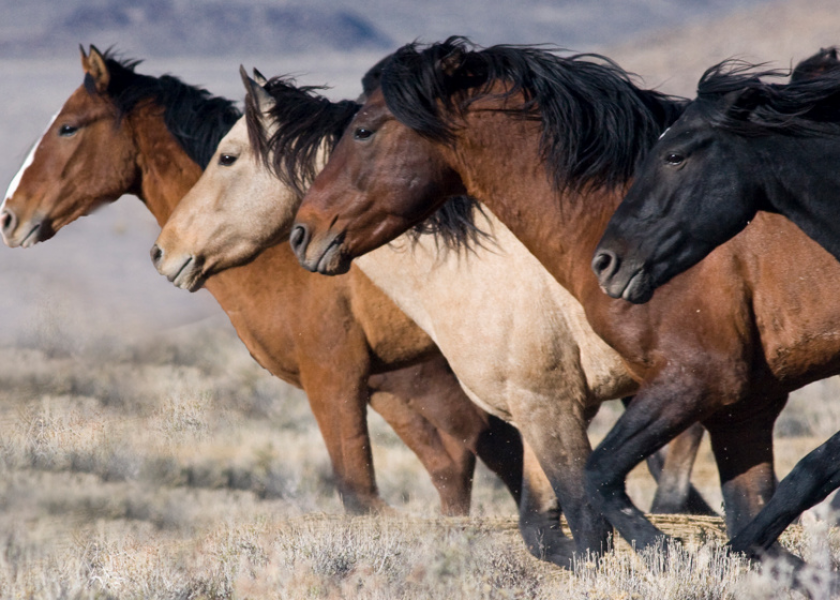John Nalivka: Wild Horses - Grazing Management And Economics Gone Awry

In 1971 Congress passed the Wild Horse and Burro Act to manage, protect, and study "unbranded and unclaimed horses and burros on public lands in the United States." Since 1971, the law and its stated objectives have led to significant controversy. Today the controversy is as heated as ever.
My wife, Sheri, and I visited southwest Wyoming last week at Flaming Gorge Reservoir near Green River. We spent one day driving our ATV across the desert north of Green River near Pilot Butte. Of course, there was the familiar sight of wild horses, which brought back memories of when I worked for the Rock Springs District of BLM gathering horses in 1980. Sheri probably got tired of my horse gathering tales by the time the day was over!
There was a great deal of controversy over wild horses in 1980 with several lawsuits filed by both the wild horse advocates and ranchers grazing on Federal lands managed by BLM. On the side of range management, BLM wanted to manage horse numbers and ranchers wanted excess horses removed. On the other side, the Wild Horse Annie advocates filed lawsuits to prevent gathering horses. They had no perception of damage to the range nor did they care. They viewed wild horses as wildlife that had an established range right. A lawsuit had just been settled that allowed us to gather horses in Wyoming.
So, here we are in 2019 and those memories of gathering horses in 1980 extend further into 1983. That year, I began working on a detailed economic analysis of the impact of wild horses for a Nevada ranch. My completed analysis was used in a lawsuit they had filed to force removal of excess horses off the range. The family-owned ranch dates back to about 1888 and has been owned by the same family since that time. The BLM range allotment is about 700,000 acres. With the establishment of the BLM, the ranch was permitted to run 125 horses on the Federal range. In 1983 and as a result of the Wild Horse and Burro Act of 1971, the number of horses swelled to well over 2,000!
The short story is that, after several years in court, the ranch won the lawsuit and the horses exceeding 125 head were removed. One important component to that case was the costs borne by the ranch to support those excess horses. This rested on a solid, credible analysis to establish those costs. We did just that. Once again, an old problem is now a new problem, or better stated, an old problem is still an old problem. With competing demands for federal range resources, the debate must come down to analysis that is concise, consistent, and credible. The debate over wild horses is no different.







